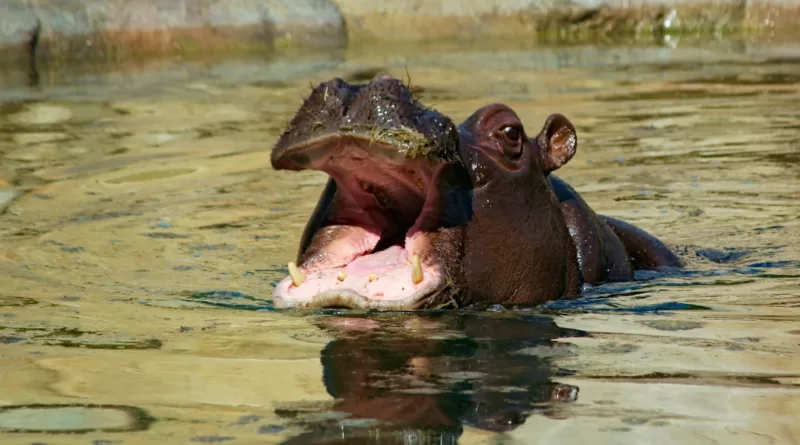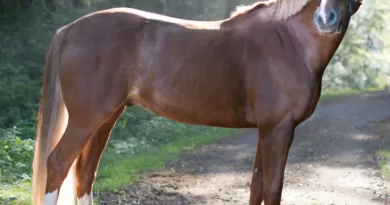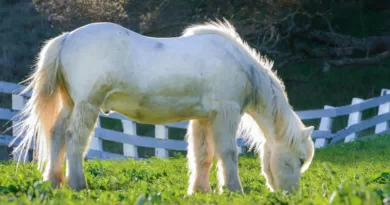How to Get Rid of Horse Flies Around Pool
Identifying Horse Flies
Horse flies are a common nuisance for both humans and animals during the warm summer months. These large, robust flies are often mistaken for regular house flies, but they possess distinct characteristics that set them apart. One notable feature is their size, with adult horse flies measuring up to an inch in length. Unlike their smaller counterparts, horse flies have prominent mouthparts that resemble sharp, piercing instruments. Additionally, their eyes are large and often iridescent, with vibrant colors such as green or gold.
When it comes to identifying horse flies, their behavior can also provide valuable clues. These pests are known for their aggressive nature, particularly the females, which require blood meals to reproduce. Unlike other flying insects, horse flies are strong and swift, capable of latching onto their victims in mid-flight. They are attracted to movement, warmth, and carbon dioxide, which means they are more likely to bite areas of the body that are exposed or in motion. If you notice persistent biting flies that are larger and more aggressive than common house flies, there is a good chance you are dealing with horse flies.
Preventing Horse Flies from Breeding
To prevent horse flies from breeding, it is essential to eliminate any stagnant water sources around your property. These flies are attracted to moist areas, such as puddles or ponds, where they lay their eggs. Regularly check your surroundings for any standing water and take appropriate measures to drain it or treat it with larvicides. By doing so, you will disrupt the breeding cycle of horse flies and significantly reduce their population.
In addition to removing standing water, it is important to maintain a clean and tidy pool area. Horse flies are particularly attracted to areas with debris or decaying organic matter. Regularly clean the pool and its surroundings, ensuring that there are no food sources or breeding grounds available for these pests. This will not only prevent horse flies from breeding but also make your pool area more enjoyable and safe for everyone.
Removing Standing Water near the Pool
Standing water near the pool can be a breeding ground for horse flies, as they are attracted to moist environments for laying their eggs. To prevent the infestation of these pesky insects, it is essential to eliminate any areas of stagnant water around the pool area. This can include emptying and regularly cleaning any buckets, containers, or pool covers that collect water. By ensuring there is no standing water accessible to horse flies, you can significantly reduce their breeding spots and discourage their presence.
Additionally, it is important to address any issues with drainage around the pool area. Check for clogged gutters or downspouts that may cause water to accumulate near the pool. Make sure that the ground is properly graded to allow water to flow away from the pool, rather than pooling around it. By taking these measures, you can minimize the presence of standing water, thus decreasing the likelihood of horse flies establishing their breeding grounds near your pool.
• Empty and clean any buckets, containers, or pool covers that collect water
• Check for clogged gutters or downspouts near the pool area
• Ensure that the ground is properly graded to allow water to flow away from the pool
• Minimize the presence of standing water to discourage horse flies from breeding near your pool.
Keeping the Pool Area Clean and Tidy
To maintain a clean and tidy pool area and minimize horse fly presence, regular cleaning and upkeep is essential. Start by removing any debris, such as leaves, grass clippings, or other organic matter, from the pool and its surroundings. These items can serve as breeding grounds for horse flies, so it’s crucial to eliminate them.
Additionally, regularly empty and clean any trash cans or bins nearby to prevent them from becoming attractants for horse flies. Make sure to tightly secure lids and dispose of the garbage properly to avoid lingering odors that may draw these pests.
In addition to general cleanliness, keeping the pool area tidy is equally important. Avoid leaving towels, toys, or other items scattered around, as they can provide hiding spots for horse flies. Store pool accessories and equipment properly when not in use, ensuring they are kept clean and dry.
By maintaining a clean and well-organized pool area, you can significantly reduce the likelihood of attracting horse flies and other pests. Implementing these simple practices will not only help create a more enjoyable and inviting space for you and your guests but also contribute to a healthier environment overall.
Using Fans to Create Airflow
Fans are a great way to create airflow around the pool area, which can help to deter horse flies. Horse flies are attracted to still air and stagnant areas, so by introducing a breeze with the help of fans, you can make it less appealing for them to linger around. Position the fans strategically to ensure optimal coverage, and make sure they are placed in areas where the airflow will be directed towards the seating and lounging areas by the pool.
When using fans to create airflow, it is important to consider the size and power of the fans. Opt for fans with a higher wattage or CFM (cubic feet per minute) rating, as they tend to generate a stronger breeze. Additionally, adjustable fans that allow you to control the direction and speed of the airflow are more effective in deterring horse flies. Remember to keep the fans running throughout the day, especially during peak horse fly activity hours, to maintain a constant airflow and keep these pesky insects at bay.
Installing Screens or Netting around the Pool
One effective method to keep horse flies away from your pool area is by installing screens or netting around the perimeter. These barriers serve as a physical deterrent, preventing these pesky insects from entering the space where you and your family want to relax and enjoy the water. By completely enclosing the pool area with screens or netting, you create a barrier that keeps horse flies at bay, allowing you to swim and lounge without constant annoyance.
Screens and netting are available in various sizes and materials, ensuring that you can find an option that suits your specific needs. Look for sturdy materials that are resistant to tears and strong enough to withstand the outdoor elements. Once installed, regularly inspect the screens or netting to check for any damage or potential entry points that may need patching or repair. With proper installation and maintenance, screens or netting can significantly reduce the presence of horse flies in your pool area, enhancing your overall outdoor experience.
Using Repellents on Yourself and Around the Pool
One effective way to keep horse flies at bay is by using repellents on yourself and around the pool area. When it comes to personal protection, applying insect repellent on exposed skin can significantly reduce the chances of getting bitten. Look for repellents containing ingredients like DEET, picaridin, or IR3535, as they have been proven to be effective against horse flies. Be sure to follow the instructions on the label and reapply as recommended.
In addition to applying repellent on your skin, it is also beneficial to create a barrier around the pool area. Spray repellents around the perimeter of the pool, paying attention to shaded areas or places with stagnant water where horse flies tend to congregate. This helps to discourage these pests from approaching the pool and biting swimmers. Remember to reapply the repellent regularly, especially after swimming or after heavy rainfall, as it may diminish over time. By utilizing repellents both on yourself and around the pool, you can enjoy a more pleasant and fly-free experience while relaxing by the water.
Attracting Natural Predators of Horse Flies
One effective method for controlling horse flies around your property is to attract natural predators of these pests. By creating a habitat that is welcoming to these predators, you can encourage them to naturally keep the horse fly population in check.
One way to attract natural predators is to provide them with food sources that attract them. Many types of birds, such as swallows and purple martins, feed on horse flies. By installing bird feeders or planting flowering plants that produce nectar and attract insects, you can create an environment that is appealing to these bird species. Additionally, having small bodies of freshwater, like ponds or birdbaths, can not only provide drinking water for birds but also serve as breeding grounds for other predators such as dragonflies and bats, which also feed on horse flies.
Creating a DIY Horse Fly Trap
Creating a DIY Horse Fly Trap can be an effective way to reduce the presence of these bothersome insects around your home or property. One simple and cost-effective method is to use a plastic bottle trap. To make this trap, start by cutting the top third of a plastic bottle and flipping it upside down, so that it resembles a funnel. Next, fill the bottom part of the bottle with a mixture of water and a sweet liquid, such as fruit juice or soda. Finally, tape the cut-off funnel portion of the bottle to the top, creating an entry point for the horse flies. The flies will be attracted to the sweet liquid, enter the trap, and ultimately become trapped inside.
Another method for creating a DIY Horse Fly Trap is using a sticky trap. This trap can be made by applying a sticky substance, such as honey or syrup, to a piece of cardboard or stiff paper. Hang the trap in areas where horse flies are commonly found, such as near barns or outdoor seating areas. The flies will be attracted to the sticky substance and become trapped upon landing. It’s important to regularly check and replace the sticky traps as needed to ensure their effectiveness. By utilizing these simple DIY methods, you can help keep horse fly populations under control and enjoy a more comfortable outdoor experience.
Seeking Professional Help if Necessary
When it comes to dealing with a persistent horse fly problem around your pool area, seeking professional help may be the best course of action. While there are several preventive measures and DIY solutions that can be effective, sometimes the infestation becomes too overwhelming to manage on your own. Professional pest control services have extensive knowledge and experience in dealing with various pest issues, including horse flies. They have access to specialized equipment and treatments that can effectively eliminate horse flies from your surroundings.
Hiring a professional also ensures that the source of the problem is accurately identified and addressed. Horse flies can breed in nearby areas that are not easily accessible or visible, such as dense vegetation or stagnant water sources. Professionals can conduct thorough inspections, locate the breeding areas, and implement targeted strategies for eradication. Furthermore, they can provide ongoing maintenance and monitoring to prevent future infestations, giving you peace of mind and allowing you to fully enjoy your pool area without the nuisance of horse flies.
How can I identify horse flies?
Horse flies are large, dark-colored flies with clear wings and a painful bite. They are often found near bodies of water or livestock.
How can I prevent horse flies from breeding near my pool?
To prevent horse flies from breeding, make sure to remove any standing water near your pool, as this is where they lay their eggs. Clean up any debris or organic matter that may attract them.
How can I keep the pool area clean and tidy to deter horse flies?
Regularly clean the pool area and remove any debris, such as fallen leaves or grass clippings, as these can attract horse flies. Keeping the area tidy will make it less appealing for them to linger.
Can using fans help keep horse flies away from the pool area?
Yes, using fans to create airflow can help deter horse flies. These flies are not strong fliers, so the breeze created by fans can make it difficult for them to land and bite.
Is it effective to install screens or netting around the pool to keep horse flies out?
Yes, installing screens or netting around the pool can help prevent horse flies from entering the area. Make sure the screens are tightly secured and have no gaps where the flies can get through.
Are there any repellents I can use to keep horse flies away from myself and the pool area?
Yes, using insect repellents that are specifically designed to repel horse flies can be effective. Apply them to exposed skin and reapply as directed. Additionally, there are repellents available that can be sprayed around the pool area to create a barrier.
Are there any natural predators of horse flies that I can attract to my pool area?
Yes, certain birds and dragonflies are natural predators of horse flies. Attracting these predators by creating a bird-friendly environment or adding a small pond can help control the horse fly population.
Can I make my own horse fly trap?
Yes, you can create a DIY horse fly trap using simple materials like a plastic bottle, a sweet bait, and a funnel. There are many tutorials available online that provide step-by-step instructions.
When should I consider seeking professional help to deal with horse flies?
If your efforts to control horse flies are unsuccessful or if the infestation is severe, it may be necessary to seek professional help. Pest control experts can assess the situation and provide effective solutions tailored to your specific needs.




